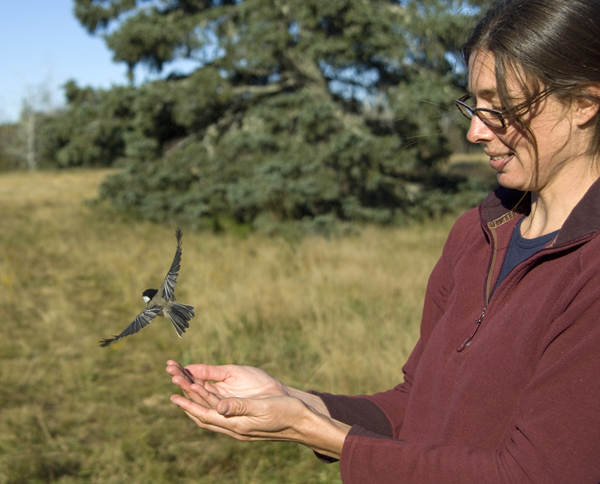
Multi-scale landscape manipulations and the impact on Maine’s avian communities
The single defining challenge to our modern biological resources is one of rapid landscape evolution. To manage these impacts and make informed choices concerning the tradeoffs between biological conservation, economic prosperity, and the Maine way(s) of life, we need to understand what species and communities are most at risk to different disturbances. The proposed project addresses these issues at a broad scale using Maine’s avian communities as its immediate focus (and following linkages across the food web from this starting point). The project uses population-scale studies, replicated within and across the state’s ecosystems to describe variation along multivariate gradients of landscape disturbance. This variation is then used to parameterize statistical and demographic models predicting the condition of our biological resources under different scenarios of landscape change. Through continued field investigations of avian life history variation under varying degrees of hydrologic manipulation, sea-level rise, landscape development and management, methylmercury exposure, and landscape acidification, the proposed project will predict tipping points for the maintenance of our avian communities via the multiple, interactive pathways of modern landscape evolution.
Investigator: Olsen, B.
Unit: School of Biology & Ecology
Termination Date: 30-Sep-16
